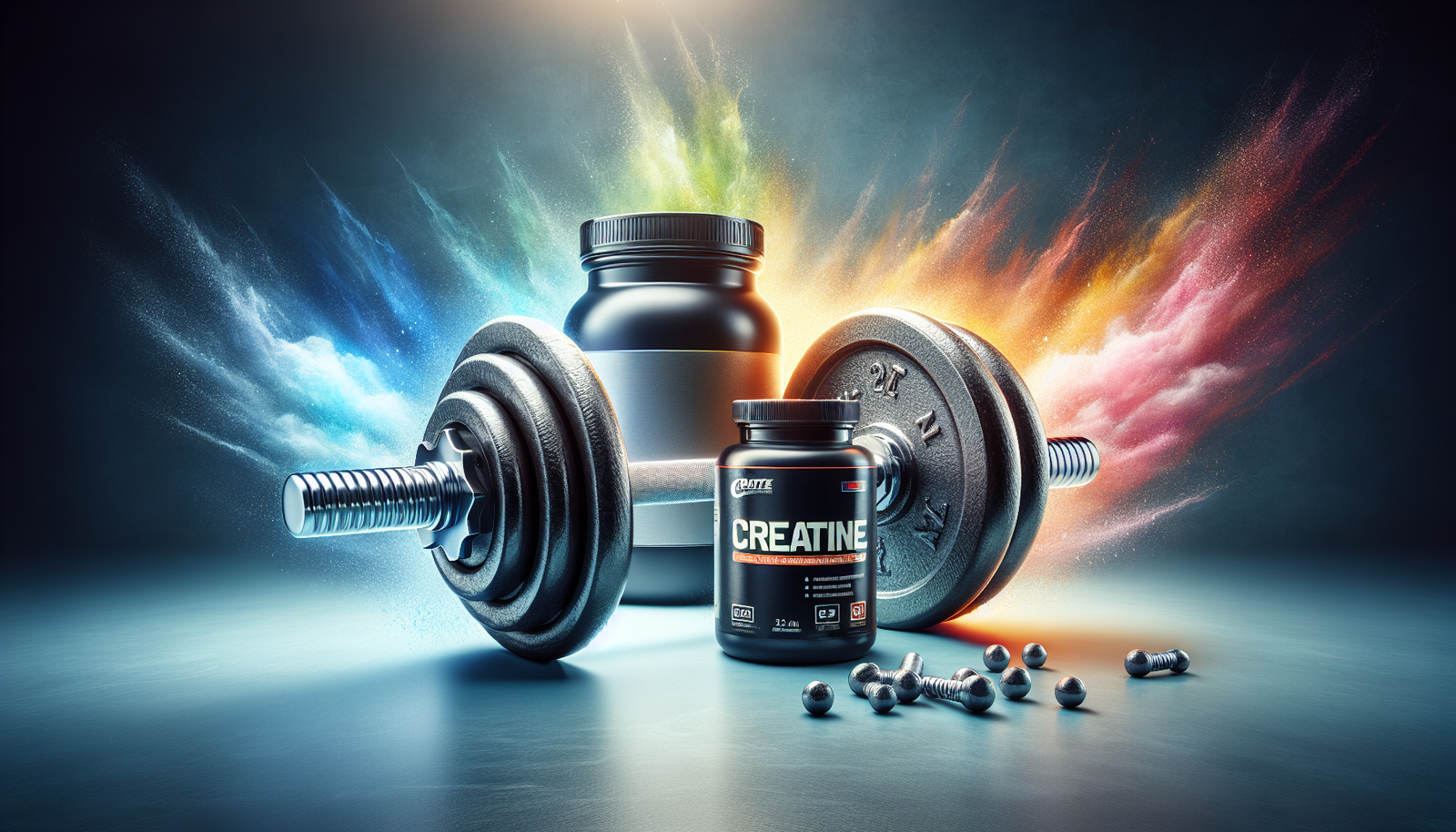Did you ever wonder if creatine is a steroid? Many people associate these two terms, but the truth might surprise you. Creatine is a naturally occurring compound in the body that plays a crucial role in energy production, while steroids are synthetic substances that mimic the effects of testosterone. Although they both have performance-enhancing qualities, creatine and steroids are fundamentally different. So, let’s delve into the distinctions between these two and debunk the misconception surrounding creatine’s association with steroids.
What is Creatine?
Creatine is a naturally occurring compound found in our bodies that plays a vital role in energy production. It is also commonly used as a supplement to enhance athletic performance and promote muscle growth. Creatine is synthesized in the liver, kidneys, and pancreas, and is then transported to the muscles through the bloodstream. Once in the muscles, creatine is converted into creatine phosphate, which is used to produce a molecule called adenosine triphosphate (ATP), the primary source of energy for muscle contractions.
What are Steroids?
Steroids, on the other hand, are a class of synthetic drugs that mimic the effects of the male hormone testosterone in the body. They can be divided into two main categories: corticosteroids and anabolic steroids. Corticosteroids, such as prednisone, are commonly used to treat inflammation and immune system disorders. Anabolic steroids, however, are often misused by individuals seeking to increase muscle mass and improve athletic performance.
Different Types of Steroids
There are various types of steroids available on the market, each with its own unique characteristics and effects. Anabolic steroids, the ones typically associated with muscle growth and performance enhancement, come in many forms, including testosterone, nandrolone, stanozolol, and boldenone, among others. These substances can be taken orally, injected, or applied topically in the form of creams or gels. It is important to note that the misuse and abuse of anabolic steroids can have serious health consequences.
Steroids and Their Effects
While anabolic steroids do have some legitimate medical uses, their misuse can lead to a wide range of negative effects. Short-term effects of steroid misuse may include acne, fluid retention, increased blood pressure, and changes in cholesterol levels. Long-term effects can be much more severe, including liver damage, cardiovascular problems, infertility, and psychological disturbances. Additionally, the use of anabolic steroids without a prescription is illegal in many countries, including the United States.
Creatine vs. Steroids: Key Differences
Although both creatine and steroids are often used as supplements to enhance athletic performance, they have distinct differences. Creatine, as mentioned earlier, is a naturally occurring compound in the body that helps with energy production. It is legal and widely available over-the-counter as a dietary supplement. On the other hand, steroids are synthetic substances that have various medical uses but are illegal when used without a prescription. While both substances can aid in muscle development, steroids have far more significant potential side effects and legal complications.
Is Creatine a Steroid?
No, creatine is not a steroid. It is important to understand that steroid and creatine are two different entities. Creatine is a naturally occurring compound in our bodies, whereas steroids are synthetic drugs designed to mimic the effects of testosterone. Creatine is not classified as an anabolic steroid because it does not have the same mechanisms of action or potential for abuse.
What Does Creatine Do?
Creatine plays a crucial role in energy production, particularly during short-duration, high-intensity activities such as weightlifting or sprinting. By increasing the availability of creatine phosphate in our muscles, supplementing with creatine can help improve muscle strength, power, and overall athletic performance. It can also aid in muscle recovery and reduce fatigue, allowing individuals to train at higher intensities and for longer durations.
Safety and Side Effects of Creatine
Creatine supplementation is generally considered safe when used within recommended dosages. Numerous scientific studies have concluded that short-term usage of creatine does not pose any significant health risks. However, some individuals may experience minor side effects such as stomach discomfort, diarrhea, or muscle cramps. It is important to stay well-hydrated when taking creatine, as dehydration can increase the risk of side effects.
Benefits of Creatine
In addition to its role in energy production and muscle performance, creatine has been attributed to various other health benefits. Research suggests that creatine supplementation may improve brain function, especially in tasks that require short-term memory and quick thinking. It may also have a positive impact on conditions such as Parkinson’s disease, depression, and certain muscular or neurodegenerative disorders. Furthermore, creatine has been shown to aid in increasing lean muscle mass, which can be beneficial for individuals looking to improve their body composition.
Conclusion
In conclusion, creatine is not a steroid, but rather a naturally occurring compound found in our bodies. It plays a crucial role in energy production and is commonly used as a supplement to enhance athletic performance and promote muscle growth. Unlike anabolic steroids, creatine is legal, widely available, and generally considered safe when used within recommended dosages. It is important to remember that while creatine can provide significant benefits for athletes and fitness enthusiasts, it should always be used responsibly and in consultation with a healthcare professional.
